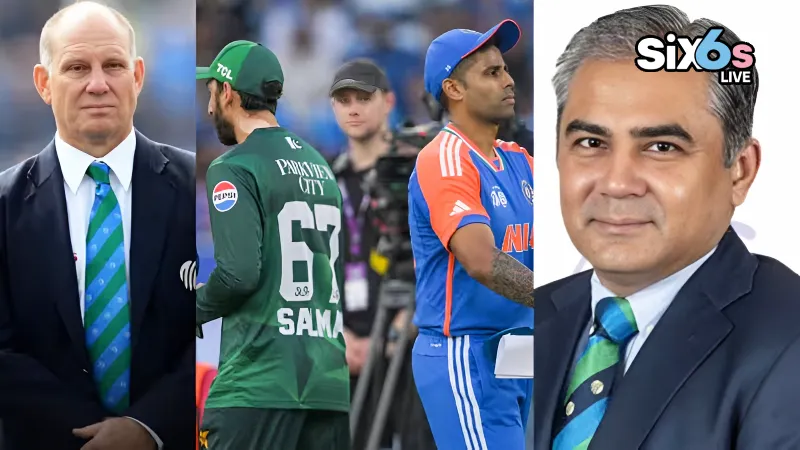A handshake became a headache for event coordinators and supporters alike. After India defeated Pakistan in Dubai, the Pakistan Cricket Board has officially petitioned the ICC to revoke match referee Andy Pycroft’s appointment, claiming he undermined the gamesmanship of cricket and was partially to blame for creating a bias in favor of one team.
PCB’s grievance: ‘He took sides’
PCB’s grievance: Pycroft interfered with the coin toss, instructed the captains not to shake hands, and then would not dismiss Pakistan’s complaint. This led Mohsin Naqvi to demand “immediate removal” and subsequently file a complaint under the ICC Code of Conduct and MCC laws, citing the Spirit of Cricket. The Team Management raised a protest and did not allow their Captain to go on stage at the post-match presentation, which illustrated how seriously the board took the matter. Reports indicated that Naqvi made a post about it, then quickly removed it from Social Media, to show you how quickly this turned political.
Why the ICC might resist
The ICC has a logical basis to be careful. Reportedly, officials do not want to establish a trend of removing appointed match referees absent compelling evidence, and independent reports that handshaking was not explicitly required according to MCC guidance weaken PCB’s position. Do not expect ICC to cooperate unless PCB can demonstrate that Pycroft was manifestly biased, not to new code, but manifestly biased. Pycroft is presented as an experienced Elite Panel official, thus complicating the legitimacy of removal and hence raising questions of institutional inertia. On this issue, the ICC has investigative, mediatory, or rejection powers – each having a reputational limitation to the organization. An ICC investigation would involve written statements from respective teams, an official report from the referee, as well as videos and audios taken on waiting; only clear, documented wrongdoing would invoke an ongoing removal process. If ‘proof’ was beyond an individual’s jurisdiction, the PCB risks the situation would be handled as a public relations battle instead – pressuring the ICC and ensuing media and pressure with low victory – no public renunciation of wrong or compensating correction. The public could remain miffed at future events, and the integrity of the tournament would remain bruised for months deep.
What’s at stake: tournament, precedent, and players
There is a risk of ramifications from the spat: PCB may opt to boycott its subsequent match against the UAE if Pycroft is not replaced – a move that would discount the Asia Cup and make political appointments polarising. That threat would test the governance of the tournament and the ACC’s ability to mediate the situation. For the players, there is an opportunity to increase pressure but an additional reminder that geopolitics can outweigh sport; for the fans, it would test their own patience and loyalty. For the administrators, it is a warning: there needs to be clear, consistent use of protocols from match officials regarding on-field etiquette and behaviour. In the coming days, we shall see if the game’s custodians can foster calmer emotions or whether it escalates further.
This is not solely about a misconstrued handshake but represents a stress test of cricket’s institutions. The PCB’s demand leads the ICC to have to reconcile precedents, review the evidence available to the third umpire, and take into consideration the perception of fairness in its ruling – and by making its ruling, the ICC will set the precedent for how cricket will act in politically charged situations in the future. So, where do you land: is a handshake gaffe sufficient grounds to overrule the match referee, or is the PCB asking too much?
Stay updated on the latest cricket news and exciting updates at Six6slive. Dive into our in-depth articles and analyses to connect with the action today!
